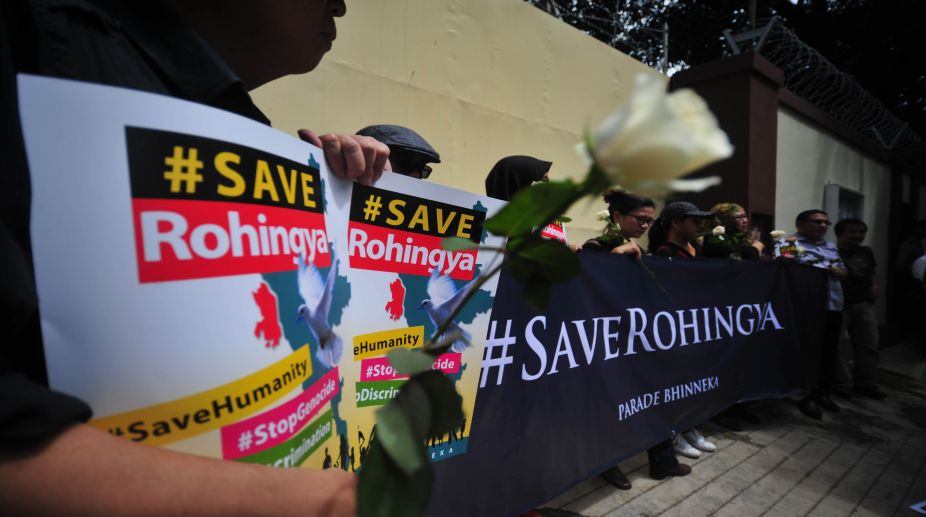Myanmar Fractures
Myanmar’s military junta, once feared as a monolithic force, is increasingly showing signs of internal decay.

Photo: IANS
Myanmar’s UN ambassador insisted Monday that there is no “ethnic cleansing” or genocide taking place against Muslims and objected “in the strongest terms” to countries that used those words to describe the situation in Rakhine State.
Advertisement
Hau Do Suan used his “right of reply” at the end of the six-day gathering of world leaders at the General Assembly to respond to what he called “irresponsible remarks” and “unsubstantiated allegations” repeated by countries in their speeches to the 193-member world body.
Advertisement
He didn’t identify any of the nations, though many spoke out about the plight of more than 420,000 Rohingya Muslims who have fled from Myanmar to Bangladesh since August 25, when Rohingya insurgent attacks on security forces prompted a military crackdown and reprisals by majority Buddhists.
Among those who accused Myanmar of trying to rid itself of Rohingya were Bangladesh Prime Minister Sheikh Hasina, UN Secretary-General Antonio Guterres, UN human rights chief Zeid Ra’ad al-Hussein, and a number of Islamic countries, including the United Arab Emirates.
Suan denied those claims.
“There is no ethnic cleansing. There is no genocide,” he said. “The leaders of Myanmar, who have long been striving for freedom and human rights, will not espouse such policies. We will do everything to prevent ethnic cleansing and genocide.”
He called the issue of Rakhine State “extremely complex” and urged UN member states and the international community “to see the situation in northern Rakhine objectively and in an unbiased manner.”
Pointing to the initial attack by the insurgent Arakan Rohingya Salvation Army, known as ARSA, he said: “It is the responsibility of every government to fight against terrorism and protect innocent civilians.”
The ambassador said there are several reasons for the exodus and “prominent among them is the fear factor.” Following the August 25 attacks and the security operation, he said, “most of the women and children were forced to flee” while men were conscripted into ARSA to fight Myanmar’s security forces.
“The scorched earth policy employed by the terrorists is another factor,” Suan said. “The terrorists planted IEDs everywhere, blew up bridges, and committed arsons.”
Amnesty International has said it turned up evidence of an “orchestrated campaign of systematic burnings” by Myanmar security forces targeting dozens of Rohingya villages. The human rights group released video, satellite photos, witness accounts and other data that found over 80 sites were torched and said as recently as Friday that fresh fires continued in Rakhine and that satellite and video images showed smoke rising from Muslim villages.
Advertisement